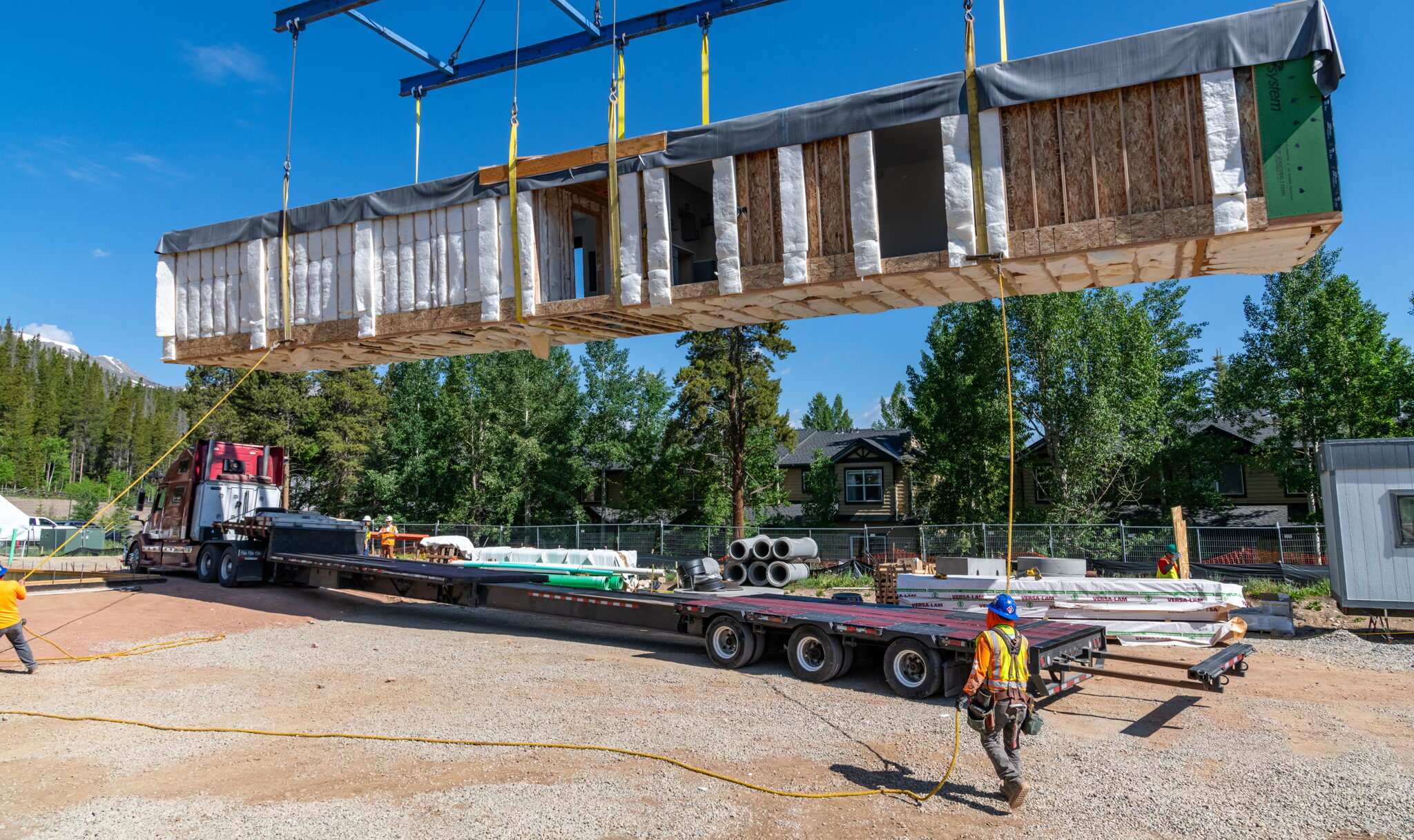Symmetry Modular.
The Missing Link in Modular Construction
On-site construction + Turn-key modular solutions
Modular
Better together.
Symmetry Modular is the modular general contracting division of The Symmetry Companies that specializes in the modular construction methodology. Since our group is part of a larger family of construction companies, we can rely on decades of experience in all phases of the modular construction process. We’re harnessing that experience to deliver modular projects across the country.
Symmetry Modular specializes in the construction management and on-site general contractor scopes on modular projects. It was built to focus on the intricacies of modular construction including design-build and design-assist deliveries of modular apartment buildings, attainable housing, hospitality, and other appropriate building types.

Turn-Key Modular Solutions
Turn-Key Modular Solutions
Nearly all of Symmetry’s traditional construction projects rely on our ability to own the process and create confidence in a complicated and fast-moving process. We’re versed in complete design-build services in which we hire the design-team, manage the site selection, procure a modular box manufacturer or factory, and then construct the project.
Symmetry Modular adds value to your project through:
- Site Selection
- Design & Engineering
- Owner’s Representation
- Feasibility Studies
- Preliminary Cost Estimating Through Final Building Costing
- Schedule Development and Control
- Modular Manufacturer Selection, Coordination and Procurement
- State and Local JHA Approvals
- Set & Stitch Services with Key Partners
- On-Site Construction Activities
- Building Completion and Turnover
On-site Construction Services
On-site Construction Services
We have assembled a team of tenured modular construction experts and commercial construction leaders to create a division that solely focuses on modular construction.
Our team builds and manages everything from:
- Construction Management
- Site Safety & Jobsite Security
- Trade Coordination
- Site Work & Utilities
- Foundation Work
- Podium Scopes
- Landscaping & Parking Lots
- Building Envelope
- MEP Systems
- Set & Stitch of Modular Modules
Our Partners
Strategic partners.
Modular construction vs. traditional construction.
The modular construction (or prefabricated/prefab/off-site construction) process differs from the traditional construction process in that the building components are fabricated offsite and then later assembled on the jobsite. Therefore, the main difference in modular construction vs. traditional construction is where the project’s components are built. That said, there are several additional considerations when determining if this delivery method suits your project’s needs.
In the debate of modular construction vs. traditional construction, it’s inherent that not every project or development lends itself to this type of construction. Still, the modular community often has viable solutions available. There are various methods encompassed in the term “off-site construction” ranging from pre-cast wall panels, structural systems to full buildings ready to occupy. These methods are part of nearly every project built in our current market.
The most talked about and prevalent benefits when discussing modular vs. traditional construction are the established cost and schedule savings. As a global rule, cost savings are around 10% to 15% over the traditional method, and time savings on on-site presence can be as large as 25% overall.
Pros
Cost
Schedule
Schedule and time savings are a direct result of being able to pre-fabricate the majority of your project off-site. The fabrication of these units starts prior to mobilizing the construction manager on the actual project site. By the time a foundation or podium is in place, a skilled installer can lift around 6 to 12 units into place per day and complete a 150-unit project in as little as three weeks! Finishing the common areas, facades, site work, and making the final MEP connections is far more efficient in the modular construction vs. traditional construction world.
Quality
The overall quality of modular units is truly exceptional. The acoustical performance of these units is much higher than traditional construction. Quality control and inspections of these units are conducted in the plant prior to shipping. No further municipal or local building inspections are required after that other than for the areas described above. Usually, these units follow the highest IBC/IEC codes and will conform to all local restrictions.
Finishes
Modular solutions also provide similar flexibilities in terms of finishes and fixtures as its counterpart. The products can range from very basic workforce housing to high-end custom units. This type of construction does not stop at housing and residential products. We have seen hospitality projects (hotels), medical facilities/hospitals, municipal buildings, and even office buildings all completed using modular construction.
Workforce
Manpower has been a huge hurdle in every construction market in the country, especially after the COVID-19 pandemic. The implementation of modular solutions allows a vast majority of the trades to be performed in factories where labor is much more available and cost-effective. This allows for more predictable scheduling and additional cost control.
Cons
Perception
One aspect of this method worth discussing is the requirement of early financing. Planning, engineering, and coordination of these units start, on average, 4 months earlier compared to traditional construction. For developers who carry financing, this will require earlier involvement from your private or institutional lenders.
Competition
This method requires a timely and early decision by the team executing your development project. Given the ability to hard bid a more traditional project over the modular delivery leaves some developers guessing about the competitiveness of modular construction. We are 100% certain that Symmetry Modular is able to prove that off-site solutions can compete in the modular construction vs. traditional construction debate.
Logistics
Logistically this delivery requires a receiving site within a ~10-mile radius. This allows all modular units to be unloaded and staged so that the installers can coordinate the smooth transport to the project site and guarantee a smooth and efficient installation.
Planning
Lastly, the modular approach does require finite decisions earlier in the design process. The prefabrication process requires the procurement of all finishes, materials, appliances, equipment, and other components early in the process. This does limit the flexibility of site changes but also allows for clearly outlined specifications to tenants, leasers, and end-users.





